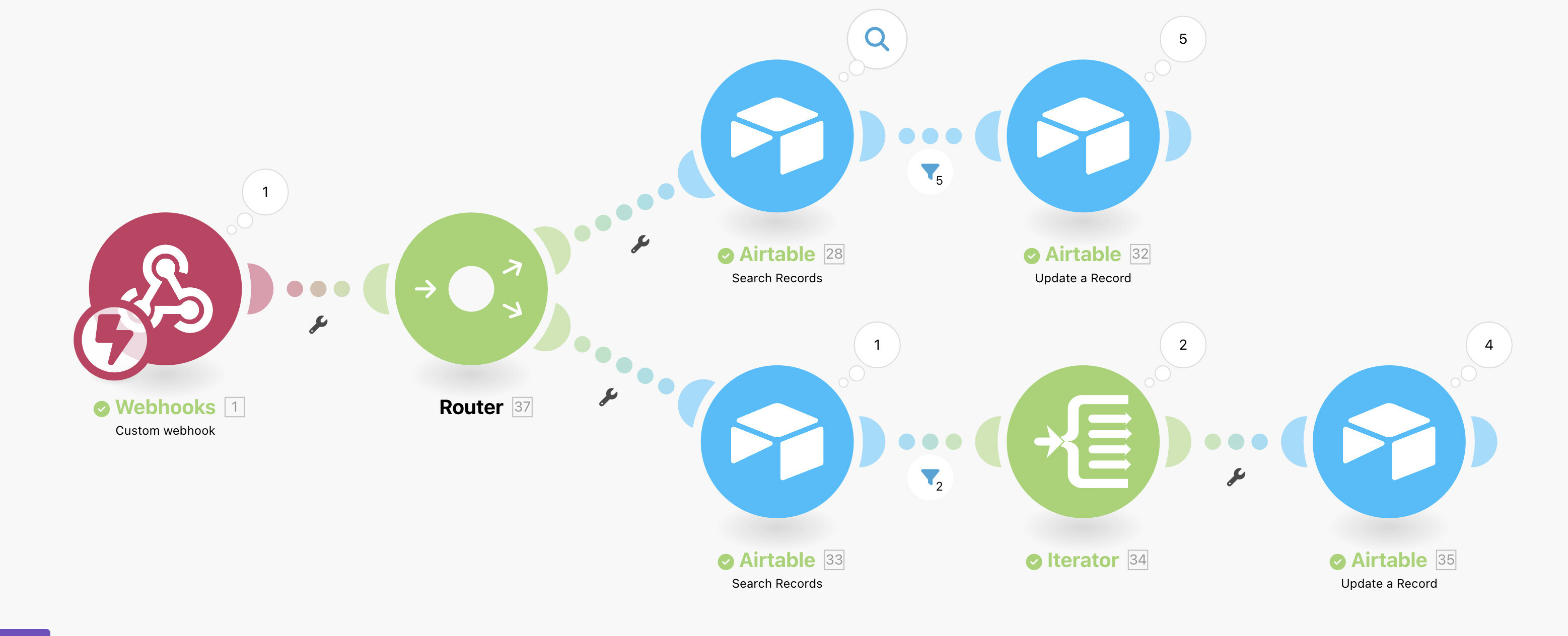Hi
This one is driving me nuts. Am sure I am missing something simple.
3 x tables -
- Objects
- Crates
- Trucks
Every object has a crate - so that is easy. Some crates contain several objects
Crates are loaded onto the truck and I have a view which shows crates that are still to be loaded (If the Truck # field is empty it is not loaded)
BUT!!!
Some crates, which contain an object, are quite small and get packed in a bigger crate. So on my crates table, I have another linked record field, which links to itself so I can show when a small crate is packed into my big crate.
So my “Loaded” view only shows the big crates that are on the truck. The smaller crates packed inside a bigger crate don’t show as being unloaded.
Am sure as soon as I post this I will figure it out - but I have spent a good couple of hours so need someone cleverer than me to help!
Read only link to a temp base to demonstrate this is here : https://airtable.com/shrK947lGGUOBNOvq
Any tips much appreciated!
Andrew




